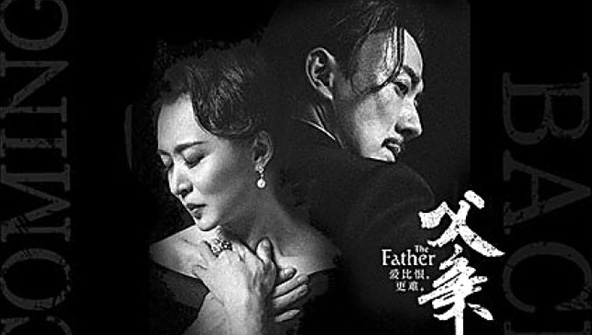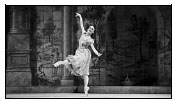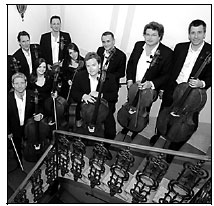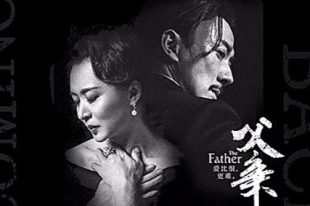Best bets


Drama The Father starring Zhao Lixin and Jin Xing
Date: July 6-8 - 7:30 pm
Venue: National Centre for the Performing Arts
If you ask me which country's fathers are happiest, I will without hesitation tell you they are fathers in Sweden, who can enjoy 16 months of parental leave. Relishing the joys of family life for 480 days, while collecting a federal stipend, is their world sweet enough? They say research has shown that men who take paternity leave do live longer. But, let's take a closer look at a Swedish father, who is supporting his family, in addition to a disavowing a mother-in-law, and missing out on paternal bliss amid allegations that his wife is having an affair. The mighty three stars of his captain's insignia do not carry much weight at home anymore, while the problem is eating him alive. Zhao Lixin is an actor, director, screenwriter, and has been praised as a factotum among China's actors. He graduated from the State Film Academy of Russia, is fluent in four languages, and has directed and acted at the Swedish National Theatre. Jin Xing is a renowned Chinese modern dancer, actress and talk show host.

NCPA Dance Drama Commission The Railway to Tibet
Date: June 30-July 3 - 7:30 pm
Venue: National Centre for the Performing Arts
In 2007, bulldozers, drilling rigs, cranes and other large-sized machinery and equipment march toward Guanjiao Mountain slowly from a distance on the horizon. Under tumultuous background sounds, a group of railway builders arrive at Guanjiao Mountain and break ground for the new Guanjiao Tunnel in Qinghai province. Passing by piles of rocks, the railway builders happen to meet a middle-aged Tibetan woman (Yangchen) and her younger brother (Suolang). They hold butter lamps in their hands, and scatter a handful of highland barley to piles of rocks and ground as if they hold a memorial ceremony for someone. Catching sight of railway builders, Suolang inexplicably bubbles over with enthusiasm and speaks Tibetan language beyond railway builders' understanding. He rushes to stop them from drawing close to piles of rocks. Yangchen calmly and affectionately stares at the piles of rocks scattered around her, whispering something with a sophisticate's low and deep voice. Everyone listens to her story and time seems to travel back to 30 years ago.

Teatro di San Carlo Ballet Company: Cinderella
Date: July 6-8 - 7:30 pm
Venue: National Centre for the Performing Arts
Cinderella Op 87, is a ballet composed by Sergei Prokofiev to a scenario by Nikolai Volkov. It is one of his most popular and melodious compositions, and has inspired a great many choreographers since its inception. The piece was composed between 1940 and 1944. The Teatro di San Carlo is the oldest of the Italian theaters. It was built in 1737 by King Charles of Bourbon (41 years before La Scala, 51 years before the Phoenix). Considered "the most beautiful in the world" for the splendor of its main hall, it has acquired a prominent place in the history of music over the centuries, contributing to the formation of the Italian opera, from the eighteenth-century "opera seria" to the nineteenth-century romantic melodrama. However, San Carlo has also made a decisive contribution to the art of dance.

Vadim Repin Violin Recital
Date: July 2 - 7:30 pm
Venue: National Centre for the Performing Arts
Born in Siberia in 1971, Vadim Repin was 11 when he won the gold medal in all age categories in the Wienawski Competition and gave his recital debuts in Moscow and St Petersburg. At 14, he made his debut in Tokyo, Munich, Berlin and Helsinki, and a year later in Carnegie Hall. At 17 he was the youngest-ever winner of the Reine Elisabeth Concours. Andrei Korobeinikov is a one-of-a-kind pianist, with a unique and singular touch which combines power and technical mastery with an outstanding boldness and sensibility. Upon winning more than 20 international prizes, Korobeinikov was awarded the First Prize of the Scriabine International Piano Competition in 2004, and a year later, the Second & Audience Prize at Los Angeles' Rachmaninoff Competition. A typical artist, he offers personal programs in which poetry and literature meet music.

Drama A Song of Guangling
Date: July 14-15 - 7:30 pm
Venue: National Centre for the Performing Arts
During the Wei and Jin Dynasties, a group of scholars gathered in Shanyang. The sentimental, upright and unconstrained scholars took pleasure in touring across the landscapes, who are hailed as "Seven Saints of Bamboo Groves" in history. Nevertheless, in the context of the rise and fall of dynasties, celebrity Ji Kang, who is a prestigious leader of literary circles, is greatly scrupled by tyrannical clan surnamed Sima in power. When his friend Lyu An is framed and sent to jail, Ji Kang never hesitates to kick against the pricks, and comes out to argue in favor of Lyu An. Accordingly, Ji Kang falls into a long-standing trap under conspiratorial plots, and has to embark on the road of no return. Just before his execution, Ji Kang calmly plays the guqin (a seven-stringed musical instrument), looks up to heaven and sighs: "Guanglingsan (his most famous melody) disappears from now on!" Ji Kang achieves his immortality when walking toward the execution ground. The play is produced with Tang Ling as playwright, Zhou Long as director, Xu Ying as artistic director and famous composer Guo Wenjing as original music creator. Artistic creators of different backgrounds have produced an original full-scale drama with Chinese aesthetic features and performance characteristics concerning the spiritual essence of the Chinese people.

The 12 Cellists of Berliner Philharmoniker
Date: July 3 - 7:30 pm
Venue: National Centre for the Performing Arts
They are unique. Naturally, every symphony orchestra has its cello section. But nowhere else in the world have the deeper, larger strings joined together to form an independent ensemble - an orchestra within an orchestra - meeting with success after success. That is why every music lover knows immediately where the "12 Cellists" come from, even if they cannot name their orchestra. They are an institution. They have played together since 1972, appearing as an ensemble, occasionally in Berlin, often elsewhere, and quite often traveling great distances. Even their premiere concert, with its evening-long program, took place not in Berlin, but instead in Tokyo, the Japanese capital, a city with which they are still closely associated.






































